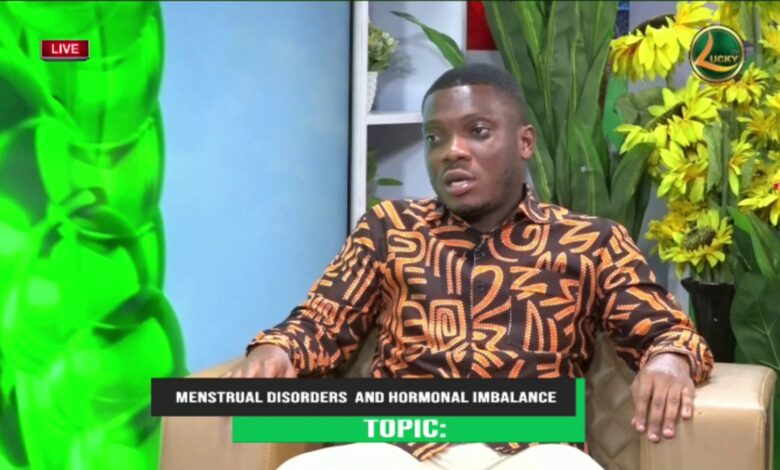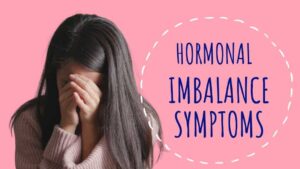Understanding Menstrual Disorders and Hormonal Imbalance: Insights from Eric Dogbatse on Lucky TV

A Deep Dive into Menstrual Disorders and Hormonal Imbalances
At Lucky Herbal Hospital, research has shown that menstrual disorders are common among women. Consequently, the hospital is committed to educating women on this issue. Eric Dogbatse, a guest on Lucky TV, emphasizes that a normal menstrual cycle begins at age 15 and typically lasts 28 days, with menstrual flow lasting 5-7 days. Deviations from this pattern, such as bleeding for less than 21 days or more than 31 days, indicate a potential problem.

Several types of menstrual disorders exist, each characterized by different symptoms. Dysmenorrhea involves cramps during menstruation, while menorrhagia denotes heavy bleeding. Amenorrhea is the absence of menstruation, oligomenorrhea refers to infrequent bleeding, and hypomenorrhea describes light periods. These disorders can stem from various causes, including uterine fibroids, hormonal imbalances, sexually transmitted infections (STIs), clotting disorders, genetics, and polycystic ovary syndrome (PCOS). Additionally, the use of birth control pills and alcohol can contribute to menstrual irregularities.
Diet and lifestyle significantly impact hormonal balance and menstrual health. Consuming fruits and cereals can help regulate hormones, whereas high intake of fatty foods should be avoided. Drinking plenty of water is also beneficial. While taking painkillers during menstruation is common, persistent pain may indicate an underlying infection, necessitating a medical check-up.

Hormonal imbalances are not exclusive to women; men are affected too. Testosterone plays a crucial role in sperm production, and imbalances can lead to infertility and other issues. In men, the presence of estrogen, which is typically absent, can cause chest bloating. Factors such as infections and wearing tight boxers can impede sperm production, but hormonal imbalances are not a common cause of burning sensations in men.
Lastly, excessive use of painkillers can lead to ulcers, and certain habits like consuming sugary foods, smoking, and alcohol should be avoided during menstruation. Post-pill and intrauterine device (IUD) injections can also affect menstrual flow and have side effects. Symptoms of hormonal imbalance include mood swings, infertility, and low sex drive in men. Regular medical check-ups are essential for both men and women to maintain hormonal health.
Watch video here –




